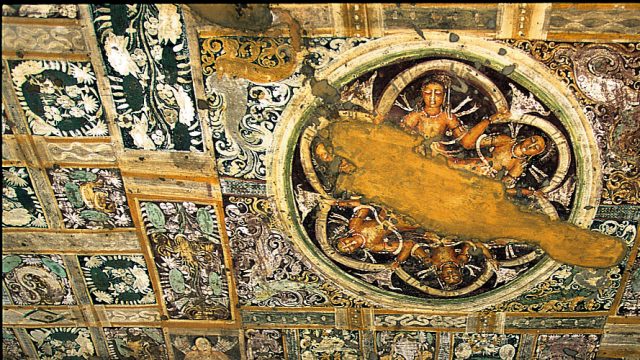After the site was abandoned, many of the caves were filled with silt, debris and eroded rubble — this acted as a natural seal that preserved Ajanta’s paintings and sculptures from the vagaries of nature and man. But, Ajanta has suffered ever since it was re-discovered. Many caves have lost their front porches. Climate and erosion also abraded much of the exposed paint and inscriptions, as did strangers who lit fires in the porches. The early British discoverers also left an imprint — their own amateur paintings! Even documentation of the site and its restoration seems to meet with bad luck. Artist Robert Gill spent 27 years faithfully copying the paintings, but in 1886 his entire collection went up in smoke when London’s Crystal Palace was burnt to the ground.
The same fate befell another batch of prints after a fire in London’s Victoria and Albert Museum. Yet another effort, by a Japanese team, was ruined when their rice paper impressions of Ajanta’s sculptures were crushed in an earthquake. The Nizam of Hyderabad’s efforts to restore the caves along with an Italian team were doomed when the varnish they used darkened and cracked leaving some of the walls irreparably ruined. The ASI has undertaken restoration of the caves.




